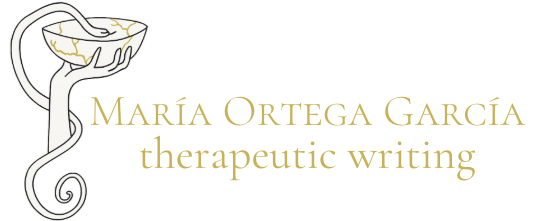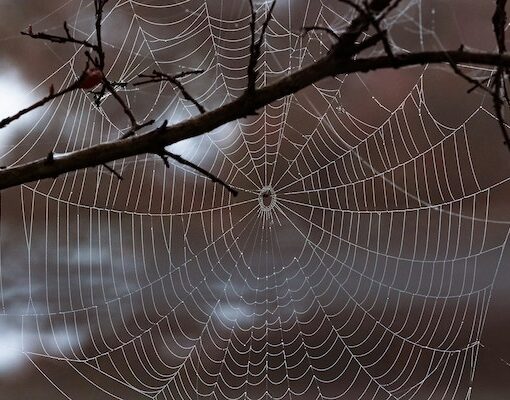Identity is not fixed. It’s more a multifaceted, fluid, ever-changing looking glass through which we view the world. Yet one of the most profound filters we use to interpret reality remains unchanged throughout our lives.
As a migrant who left her native country 20 years ago, I have spent as much time outside my motherland as I have spent in it. Never did I think that my mother tongue was at risk, nor my culture, but now, when I am chatting with my mother on the phone, I sometimes find myself in utter stupefaction, observing my mind going completely blank, unable to find the words I once knew.
How wrong I was! My univocal mother tongue was increasingly transfused with English to become an emulsion. My mother tongue is not indistinguishable from my adoptive one, and both are becoming independent, with life on their own. The problem was that, over time and with repeated exposure and exercise, my adoptive tongue had become the main one. Simultaneously, the frame of mind that shaped my native expression has begun to crumble due to entropy, and the pillar that sustained my adoptive tongue has become unstable.
What happens when the foundations of a building rot?
Everything supported by those foundations became fragile. My identity was brittle, and so was my expression.
Language is no more than the visible and audible frame of a mindset, a common worldview expressed through common words and ways.
“We don’t see the world as it is. We see it as we are”
– Anaïs Nin
Circles of perception, interpretation, and words influence one another in a generative cycle. My worldview was becoming unexpressed, and my adoptive tongue was unable to capture my native tongue’s way of interpreting the world.
As a lover of poetry, my eyes turned to poems about language and migration in a search to understand the changes my identity was going through.
“Discourse on the Logic of Language” by M. NourbeSe Philip broke me open—the concept of mother tongue and father tongue. The anguish and dumbness of having two tongues enmeshed in your veins, unsure of when one starts and where the other ends, broke me.
Discourse on the Logic of Language, by M. NourbeSe Philip
English is my mother tongue
A mother tongue is not a foreign
lang lang lang language
languish anguish
a foreign anguish
English is my father tongue
a father tongue is a foreign language
therefore English is a foreign language
not a mother tongue
what is my mother tongue
my mammy tongue
my mummy tongue
my momsy tongue
my modder tongue
my ma tongue
I have no mother tongue
no mother to tongue
no tongue to mother tongue me
I must therefore be tongue-dumb
dumb tongued
dub tongued
damn dumb tongue
but I have a dumb tongue
tongue dumb
father tongue
and English is my mother tongue
is my father tongue
is a foreign lan lang lang language
languish anguish
a foreign anguish is English
Another tongue
My mother mammy mummy modder mater meser modder tongue
mother tongue tongue mother
mother tongue me
mother me touch me with the tongue of your
lan lang language
languish anguish
English is a foreign anguish […]
Poet Sujata Bhatt, an emigrant from India, in “The Search for My Tongue” offered me an opening, an answer to my search for identity.
The Search for My Tongue, by Sujata Bhatt
You ask me what I mean
by saying I have lost my tongue.
I ask you, what would you do
if you had two tongues in your mouth,
and lost the first one, the mother tongue,
and could not really know the other,
the foreign tongue.
You could not use them both together
even if you thought that way.
And if you lived in a place you had to
speak a foreign tongue,
your mother tongue would rot,
rot and die in your mouth
until you had to spit it out.
I thought I spit it out
but overnight while I dream,
it grows back, a stump of a shoot
grows longer, grows moist, grows strong veins,
it ties the other tongue in knots,
the bud opens, the bud opens in my mouth,
it pushes the other tongue aside.
Every time I think I’ve forgotten,
I think I’ve lost the mother tongue,
it blossoms out of my mouth.
Reading her bilingüal words in Gujarati and English was like looking at a welcoming future where fluid language can fully express identities outside of separate language containers. A future where words express integrated life experiences and where loss is a boon.
I lost count of the disjointed sermons I wrote addressed only to my ears. I wrote research pieces to extrapolate a conclusion from the chaos that is my language at a specific point in time, the amalgam of cultures and worldviews that structure my mind, and the colourful fabric that embraces my heart, my soul.
The search continues, and words pour out from the tips of my fingers. And I read them like a gospel that would provide comfort to be, at peace, with the mystery that is life’s most defining question: Who am I?
Kintsugi Quality, by María Ortega García
I think I lost my Spanishness.
Did I ever have it?
Embraced it?
Felt proud of it?
That’s the dark side of self-awareness and questioning it all,
Isn’t it?
The paradox of loving and hating,
Is hating too strong a word?
Maybe it’s more sorrow.
a deep sadness of the palpable darkness
and a longing for the subtleties to be featured;
brought to the forefront.
I miss my Spanishness.
I’d love to write in Spanish now
that there is no fear of being read by my people.
Because there are not many left anyway,
and those who are, need to read me.
I need them to read me.
But I can’t write in Spanish anymore
not from the depths of my soul.
My soul is not Spanish anymore.
And I feel as if I let it go, vanished at my fingertips
and a part of me is gone.
Dead, past the point of revival.
And yet, there is still emotion.
Anger at the darkness and dark ages,
pining for the uniqueness and slowness and the seating at the table
and honouring the food being the centre around which everything revolves.
And I grieve the loss of my dark ages
and the uniqueness
and slowness and the sitting at the table and honouring food as the way to show love and throw lifelines and hugs.
I wonder how it can be possible to be a patchwork
of languages, cultures, and perspectives
and still be unable to express true emotion in my native tongue.
Or maybe I’m still afraid to try?
Self-sabotage.
As usual.
Is my Spanishness still here?
Can I throw it a lifeline and a hug through a tinto Rioja y un pincho de morcilla
and breathe new life into my broken Spanish heart.
And pour multilingual gold into the cracks and make it whole
Make me whole.
Who will I become?
Originally published in Irish Poetry Therapy Magazine.






